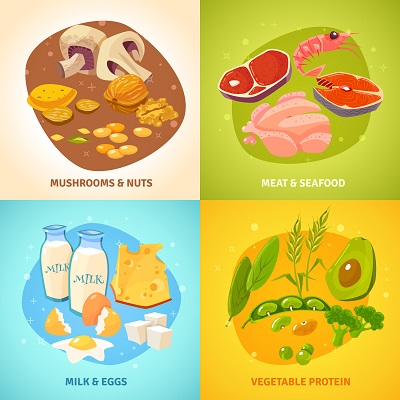 Your grandmother and you mother will be happy that their old-fashioned notions of what is good nutritious food is now making a grand comeback.
Your grandmother and you mother will be happy that their old-fashioned notions of what is good nutritious food is now making a grand comeback.
Yes, the food your parents and grandparents used to foist on you when you were a kid – they were the right kinds of food for you after all.
First thing to remember is that when we mean by “whole” food, we mean the kind of food that is not processed at a factory; that does not come in foil or plastic packaging and has no expiration date because it is presumed to be highly perishable and because they have just come from their natural source.
You can usually find them in the refrigerated section of your market because they have to be kept chilled lest they spoil.
Can you guess what all the term “whole” food includes?
Fresh fruit, fresh vegetables, fresh meat, fresh fish, fresh poultry, fresh seafood, whole grain cereals, nuts and legumes. Whole food also includes, eggs, milk (although it’s pasteurized) and dried fruit such as raisins and prunes (though these have been dried).
Second thing to remember is of all the thousand kinds of fresh whole foods, those which, can help you build muscle instead of fat are foods that are high in protein content and low in fat, sugar and salt.
Thus, fast food (think fries, burgers, fried chicken, hot dogs, bacon, ham) and junk food (chips, cookies, cake, ice cream) are not good sources of protein because what little protein they can give you comes with salt, sugar and fat.
Third thing to remember is that protein does not necessarily have to come from meat and animal-based food.
- Vegetables, grains and nuts are also a good source of protein. Nuts, such as, almonds, cashews and walnuts are all good sources of protein (you can substitute nuts for the chips and other crunchy crispy salty snack food you are used to eating).
- Protein from animal sources will include eggs, milk, chicken, lean pork, fish and seafood such as shrimp, crabs, mussels and clams.
- Soy, mung beans, kidney and fava beans, even string beans and peas are also a good source of protein.
- You may not believe it, but dried fruits, such as, raisins, prunes, apricots and dates are also a good source of protein.
- Then there are avocados, black and red currants, mulberries, durian and blackberries.
- Tomatoes, spinach, broccoli, asparagus and cauliflower are also high in protein.
- Grains, such as whole wheat and rolled oats also contain protein in their germ. Thus, while these are carbohydrates rich food, they also contain protein.
Thus, while these are carbohydrates rich food, they also contain protein.
Fourth thing to remember is that the way you prepare food may affect the amount of protein you can derive from the food.
Fruits and nuts may be consumed without cooking. Vegetables, such as tomatoes, fruits such as avocado and berries may also be consumed fresh and raw. Dried fruit retain their protein content so you can eat raisins, prunes and dates right out of the box. As for meat, boiled, steamed, grilled or broiled, roasted and baked with minimal fat is best.
The fifth thing to remember is that eating a variety of food will help you keep a balanced diet. You cannot eat only protein-rich food without eating food that are rich in vitamins and minerals, too.
If protein helps you build muscles, food that is rich in vitamins and minerals help you keep the muscle fibers flexible and supple. They also help proper blood circulation which aid in repair of muscles.
So, balance is key.
Eating a variety of food will help you maintain good health, as well as build muscles.
One last thing to keep in mind is that when people want to build muscles, they usually avoid all kinds of fat like a plague. There is good fat and there is bad fat.
Cashews and avocados, shellfish and deep-sea fish are high in protein as well as fat – but the fat that these food contain is the good kind of fat that helps keep soft tissues, such as, the arteries supple and flexible.
The good kind of fat from these plant-based protein rich food also help boost brain health.
So, good fat and lean protein are not a bad combination, such as that which can be found in whole milk from grass-fed cows (organically-fed and raised cows) and organically raised eggs.






